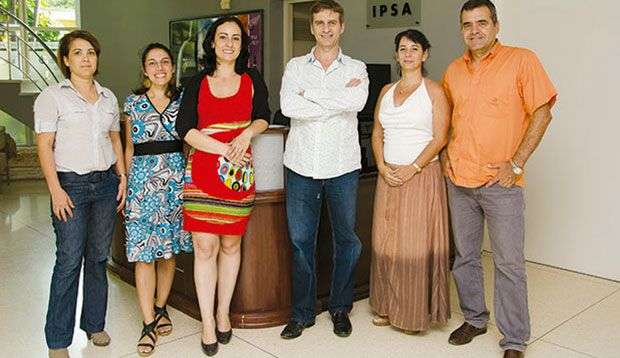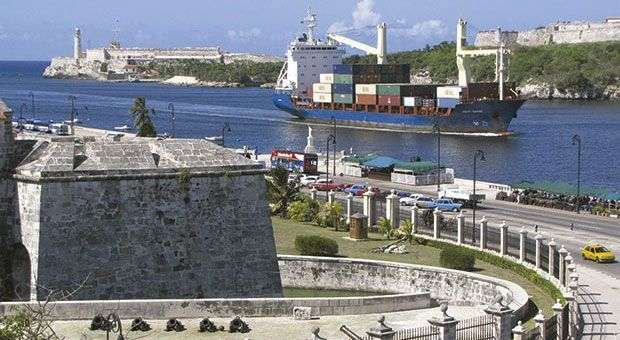In July 2012, it was officially announced that before year’s end, Cuba would have a new investment law to replace Law 77 of 1995, and that—in line with the most widespread expectations—more openings would be allowed for direct foreign investment. Many economists have referred to this step as decisive for breaking the relative impasse that the Cuban economy has reached. Assuredly, for authorities and legislators it must be a major challenge to find the right proportion for ensuring national sovereignty and efficient use of the market, technology, and foreign capital.
Recently, foreign trade officials reported that 190 joint ventures between the Cuban State and foreign private companies exist in the country, less than half of what existed in early 2000.
Antonio Carricarte, vice minister of the Ministry of Foreign Commerce, said a few weeks ago that “a general and sectorial policy is in the process of being evaluated to accompany the promotion of this foreign investment, and while no changes to the law are anticipated, certain regulations may be updated.” This “new vision” adds to uncertainty, but at the same time, it confirms that this matter is on the agenda. In the coming months, the news could finally come.
OnCuba approached E. Ucha, president of Inversiones Pucara S.A., which has been in Cuba for almost 16 years, enough time to accumulate experience. His distribution company, which he himself describes in terms of professionalism, quality, and seriousness, represents very important brands for the tourism and gastronomy sector in Cuba.
They say that Law 77, which regulates foreign investment in Cuba, still offers many possibilities. What motivation might there be to change it?
Investing in a country where there are unknowns and with a minority percentage (51%-49%) does not offer many guarantees to the investors, unless they involve very specific things at the level of the government, of the State. I think that what could really change is giving investors more leeway for participation in this sense, security in their investment, and that would also have to come from their own countries. It’s one thing when you’re talking about those of us who have been here for years and know the system, and another when it’s someone who has never come to Cuba and wants to invest. I have investments in many countries and I look for the legal aspect that gives me a guarantee, whether that is in a small or large business. Every country regulates in its own way; in the end, I think what is important is conveying security to the investor.
Among economists and experts, the idea is put forward that Cuba is very selective in approving an investment project. What might be some of the advantages and disadvantages of that selectiveness? What consequences could it bring?
One is always selective, right? It’s like when you choose a companion. You are very selective, but then there’s life…. It is good to have a filter, but I think that the filter does not have to be eternal. I know a lot of people that are involved in big projects, and the problem is that they can’t wait five or six years, because that’s an eternity. So saying “yes” or “no” I think is fine, but within a prudent period. When you enter into a system of selection, it takes time…. Because what is interesting today might not be in six years, or not in the way that you imagine it today.
It is also said that these policies are applied at discretion, that the letter of the law is one thing and the way it is applied is another. Do you agree with that opinion?
That is everywhere. What we know is through our connections with other companies, because we have acted on behalf of other groups, including very important groups, that I personally think and say: how can Cuba reject a partner like this, which is number one in the world? But of course, that’s just my opinion. The country has its experts, and its criteria. So they know why not.
Approximately a year ago, it was announced that work was underway on a new foreign investment law. What could be the causes of this delay, what could it mean?
I think that it seems to everyone that the government is interested, and it wants to make progress on those issues. What we would like is for the law to be here as soon as possible, and for it to be a good law, so that at least those of us who are here can invest and grow. I think that we do have many things to contribute to a country and a system that we’re familiar with.
You refer to “us”; are there expectations about this in the business community based in Cuba?
Of course, of course there are. The business sector is waiting for an opening in that sense.
What would you invest in if the conditions were ideal here?
Well, in Cuba. In everything. Here you can invest in everything, because I thing that everything needs improvement, there is an extremely broad field. What would we like? To be able to be more efficient every day, to be able to distribute directly, to have better coverage.
The chain of distribution, the levels of contracting, I think is one of the biggest problems. Cuba loses a lot of money in that. So we are in a position where we really can’t do any more. Look, if I can invest because the law allows me to do so, then I would have 10 trucks in the street, distributing every day. We also have a lot of interest around the matter of the Mariel Economic Zone, because in addition to what we do here, we have other business in the area. I think that that zone has enormous potential, because of the island’s location, and if customs was a rapid system of transit and clearance, to have a platform that works for Cuba and for other countries in the Caribbean.
Cuba puts forward a group of sectors as prioritized for foreign investment: tourism, mining, agriculture, and oil…. This is a proposal that responds to the country’s needs. Could this turn into a disadvantage or limiting factor?
I don’t see any disadvantage. I think that there are different types of investors for everything. When you talk about tourism, the field is very broad: from a restaurant to a hotel…a very large range. We are not going to get involved in oil, for example, because we don’t know anything about it except for filling up the gas tank and going. For me what needs to be found is that each [investor] improves in whatever he is really good at and knows how to do.
Based on these demands, what essential questions could not be left out of a new law?
For me the most important thing is the country’s system of contracting and distribution.
The channel of distribution in Cuba is very slow; so I think that all of that would really help things to flow better, in every sense.
Certain services that your company needs could be contracted with the non-state sector…. Can you imagine that situation with self-employed workers or cooperatives, for example?
It would be much more competitive, sure, a better service. Now the “paladars,” the restaurants, are working because they belong to individuals who want to make them better every day, because customers are their life’s blood. It’s the same case with transport. It would be more competitive in terms of price, would give the best service, and would have an offer, which is what makes things work.











